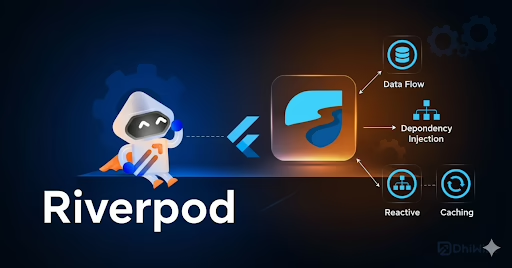For quite some time, Android app development has been on the increase. This is because Android has surpassed Apple as the most popular smartphone operating system in the world. With this new rise in demand, many firms are wondering which programming language to utilize to create a cutting-edge mobile app.
When most professionals think of Android app development, only two technologies come to mind: Kotlin or Java. Both Kotlin and Java are outstanding and popular programming languages. Both are mostly renowned for their superior capabilities, features, and ability to create fantastic Android applications.
We can’t utilize many languages to construct a mobile application. So it’s critical to choose which is best between Kotlin and Java. So let’s look at the advantages and disadvantages of both languages. As well as, what makes them superior for specific types of Android application development projects.
Kotlin Technology

Kotlin is an open-source programming language created by JetBrains in 2010. It can be utilized in the development of Android, IOS, and desktop applications. Kotlin has Java compatibility, which means you can leverage their existing Java skills and experience. It also allows them to use Kotlin for Android application development projects.
Kotlin Features
- Java Interoperability: Kotlin allows you to leverage your existing Java skills and knowledge. This means that developers can keep writing Android apps in their current programming language.
- Null Safety: Kotlin is null-safe, which prevents problems caused by missing types or incorrectly initialized arguments. It is critical that you do not utilize a type as the default null value.
- Nullable Types: Kotlin does not require “null” or “nill”. This means that it prevents errors caused by missing types and parameters. It also improves the readability of code.
- Properties with Getters and Setters Automatically Created: Kotlin includes properties with automatically produced getters and setters. This means that developers will be able to build and read the Android app faster.
- Concise Syntax: There are no unnecessary tokens or keywords, making the code concise and easy to read for developers.
Java Technology

Sun Microsystems founded Java in 1995. It is object-oriented, imperative, and has automatic memory management. Java may be used to construct Android applications as well as desktop apps. However, it must import Java classes, which makes the code slightly more involved than Kotlin’s.
Java Features
- Memory is Automatically Managed: With automated memory management, developers don’t have to worry about allocating and deallocating memory in their code. It is because the garbage collector does it for them.
- Uses Garbage Collector: Java employs a garbage collector to manage memory in the code. This makes it easier for businesses to focus on their Android projects. Rather than worrying about manually managing memory and allocating/deallocation resources.
- Supports Multiple Platforms: It supports many platforms, so developers can begin coding in Java and later move to Kotlin for Android app development projects.
Similarities between Java and Kotlin
There are many similarities between Kotlin and Java. For example, Kotlin’s type system is similar to that of Java. This implies that developers can quickly convert their existing code into a new language.
- Type System: Both languages are comparable, so no need to worry about translating your current code to the new language.
- Collections Library: Kotlin’s collections library is quite comparable to Java, and classes are also simple to convert, making it ideal for developers who wish to experiment with this programming language.
Comparisons between both Kotlin & Java
- Usability: Kotlin is far easier to use and understand than Java. It also includes a solid array of tools, IDEs, and tutorials that make mobile application development easier. However, if you hire Kotlin developers to create the app, he will complete your project quickly because he is experienced in Kotlin in Android Development.
- Efficiency: Java is a mature programming language with high performance. Because of its use of immutability and properties, as well as being 100% interoperable with Java, Kotlin outperforms Java for Android Development.
- Recognizability: Kotlin is a newer programming language that has swiftly become one of the most popular choices for Android app development. Furthermore, it is supported by Google, which ensures that Kotlin will continue to gain support and improve over time. However, in the current circumstances, Java is more popular than Kotlin
- Cross-Platform Development: Development across platforms Kotlin can cross-compile and run on several systems, whereas Java is constrained by the usage of bytecode, which can only be compiled for one platform at a time. There are many situations in mobile development when developers must generate Android, IOS, and even Windows versions.
- Mature Libraries: Java has a large array of libraries, frameworks, and tools for Android development. Kotlin is catching up with the launch of additional libraries such as KTX and Coroutines, but it still has some catching up to do in this area.
- Flexibility: One disadvantage of employing languages such as Java or C++ is that they are not as scalable. As a result, the program can get bloated and slow down performance, especially on older devices such as Android phones. Kotlin’s design places a greater emphasis on scalability, which enhances app performance by decreasing bloat. Focus on Kotlin app development if you want a scalable solution.
- Community Support: Support from the Community. Kotlin is a new language, although Java has been around for a long time. As a result, Kotlin has more expertise and development resources available to consult with than Java, making it the preferred choice of many enterprises in recent years.
Comparison Table

Which is Better for Android Development
Both languages are wonderful and provide a variety of perks that make them good candidates for designing cutting-edge mobile applications. However, when it comes to Java vs. Kotlin, there are certain sorts of apps where one may be superior to the other.
Java is better for:
Large programs have a large number of features and capabilities that must work on multiple platforms, including Android, iOS, Windows, and Linux. Java provides mature libraries that are ideally suited to this type of application development.
Kotlin is better for:
Apps where performance is critical, such as those that need to function smoothly on older Android phones or those used for photo editing. Because Kotlin has a more streamlined and efficient design than Java, it will perform better in these instances, particularly when it comes to scalability. Apps must be platform-independent and cross-compiled for numerous platforms, including Android. Kotlin can do these functions, however, Java cannot since it uses bytecode, which can only build code for one platform at a time.
Sreyas is a prominent software and mobile app development firm, boasting extensive expertise in UI/UX design. Our global presence allows us to offer a comprehensive range of services, including data migration, database management, web hosting, infrastructure management, and more to clients worldwide.







